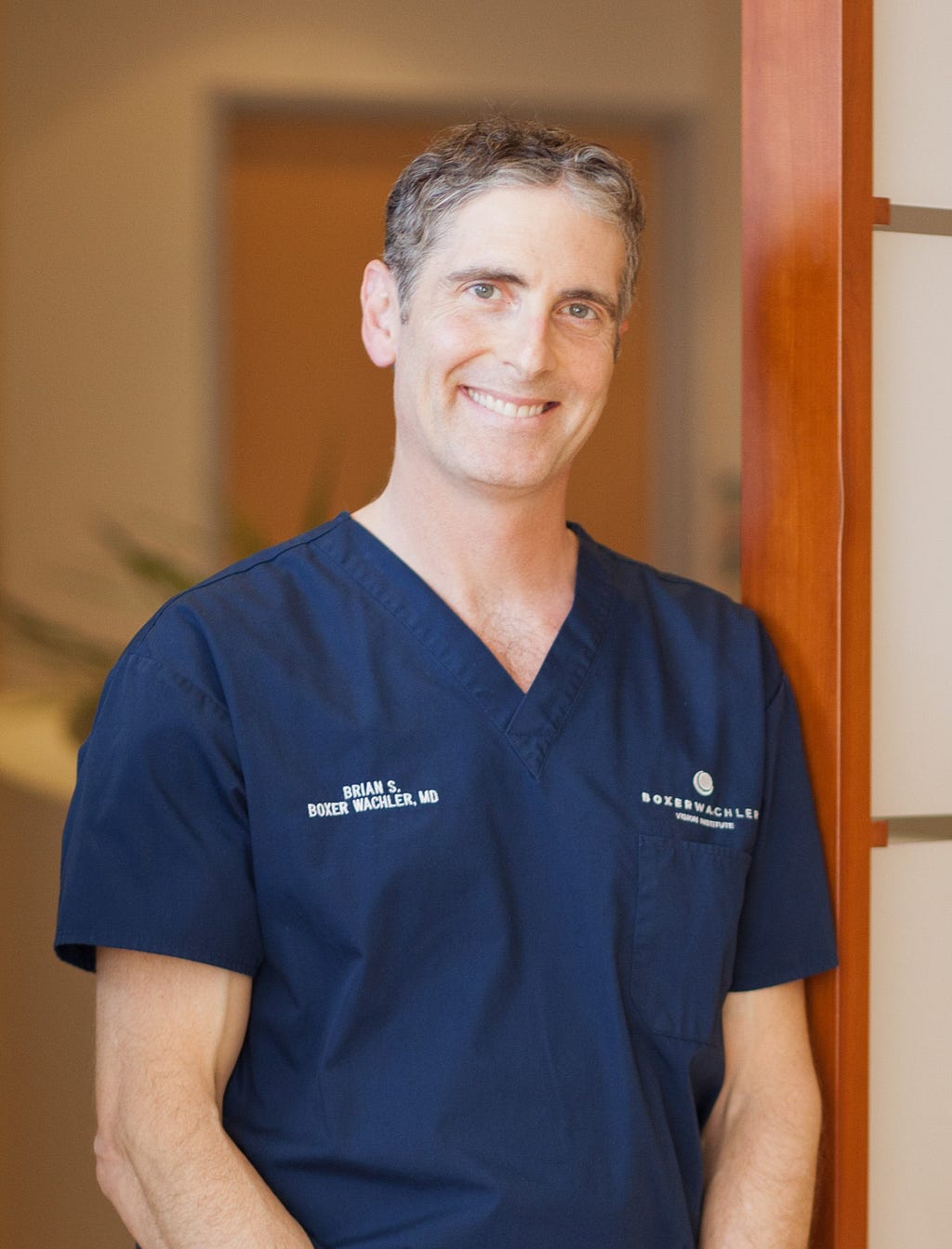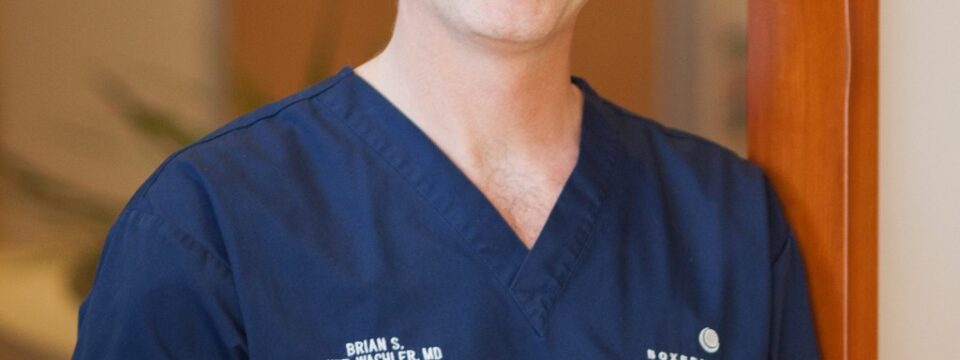Social Impact Authors: How & Why Author Dr. Brian Boxer Wachler, ‘Dr. Brian,’ Is Helping To Change Our World

As my role on social media is to endorse or debunk viral health trends, one follower told me that as a result of one of my videos about sun screen to help prevent cancer and aging, she now wears sunscreen every day. I feel honored when I receive messages that I’m inspiring people to pursue their dream of being a doctor advocate.
As part of my series about “authors who are making an important social impact”, I had the pleasure of interviewing Brian Boxer Wachler, Md.
Brian Boxer Wachler, Md. widely known as “Dr. Brian,” is a popular social media influencer, most prominently on TikTok. His previous book, Perceptual Intelligence: The Brain’s Secret to Seeing Past Illusion, Misperception, and Self-Deception shook the worlds of neuroscience and psychology, coining the acronym PI for Perceptual Intelligence and educating countless readers on how to better understand the world around them and make better decisions. The medical director of the Boxer Wachler Vision Institute in Beverly Hills and a staff physician at Los Angeles’ Cedars-Sinai Medical Center, he has pioneered medical and surgical treatments that have become industry standard. Dr. Brian is one of only two influencers worldwide to be selected as a member of the Advisory Committee for Identifying Credible Sources of Health Information in Social Media for the National Academy of Medicine, Council of Medical Specialty Societies, World Health Organization. He lives in Los Angeles with his wife and their twin teenage daughters, who encouraged him to become a social media influencer.
When you were younger, was there a book that you read that inspired you to take action or changed your life? Can you share a story about that?
When I was in college, I used to make extra money from buying, fixing up, and selling classic muscle cars. I read a book Getting to Yes that discussed negotiation strategies. It proved quite useful in my muscle car venture.
It has been said that our mistakes can be our greatest teachers. Can you share a story about the funniest mistake you made when you were first starting? Can you tell us what lesson you learned from that?
My funniest early mistake with when I had an idea for my first book. I was at the Sochi Olympics in Russia to support my patient Steven Holcomb who was defending his gold medal in bobsled from the previous Olympics. I wrote a one-week memoir on my wild experience in Russia under Putin and thought it would be a book! The idea morphed into a psychology treatise about perception and what factors affect it. The lesson I learned was how important it can be to listen to others who help improve upon your original vision.
Can you describe how you aim to make a significant social impact with your book?
I consider myself an “accidental social media influencer” since my twin teenage daughters initially encouraged me to go down this road which led me to have over 3 million followers.
My goal with the book is to honor “truth” — truth about social media, truth about mine and other influencers’ experiences, and truth about how we can best live with it, since it’s not going away. INFLUENCED contains everything that I’ve learned from direct experience, published studies, and my interviews with other top influencers who revealed personal experiences that they’ve never before shared in public.
Can you share with us the most interesting story that you shared in your book?
I decided to share how I, as an influencer, became the one being influenced. Social media can be just as addictive as drugs, sex, and gambling through a tiny, yet powerful chemical in our brain called dopamine. As I was explosively growing my platform, the dopamine deluge severely affected my life as I became addicted to social media. I openly discuss that, the consequences, and how I eventually was able to overcome it.
What was the “aha moment” or series of events that made you decide to bring your message to the greater world? Can you share a story about that?
After I processed my social media addiction phase, I spoke with other influencers who shared similar experiences. I realized that if we influencers can succomb to the dopamine drives, than pretty much any user can too. I wrote this book to ultimately help people understand all aspects of social media and provide powerful tools to successfully co-exist with it. There also is a chapter where other influencers and myself share tips for those who wish to grow their social media platforms and perhaps dip their toe in the influencer world.
I like to say, “Social media is like fire; you can use it for illumination or it can badly burn you.”
Without sharing specific names, can you tell us a story about a particular individual who was impacted or helped by your cause?
As my role on social media is to endorse or debunk viral health trends, one follower told me that as a result of one of my videos about sun screen to help prevent cancer and aging, she now wears sunscreen every day. I feel honored when I receive messages that I’m inspiring people to pursue their dream of being a doctor advocate.
Are there three things the community/society/politicians can do to help you address the root of the problem you are trying to solve?
- Question claims in viral videos and posts. There is an inherent assumption that because a video or post went viral that the content is honest and accurate. The book highlights this and helps people understand the importance of using critical thinking skills while consuming content. There are means to verify content outside the platforms.
- Reduce the amount of anonymous vitriol in comments’ sections or in posts themselves. This can easily be accomplished if the platforms insist and verify that there is a face and real name to the account. Currently, anonymous accounts have little to fear. Just like in face-to-face interactions, only a fraction of these accounts would say or post harmful, inflammatory, or insulting content if their identities were publicly known. The apps can shine a light in these dark corners.
- Elevate content from credible content creators. I am member of the Advisory Committee for Identifying Credible Sources of Health Information in Social Media for the National Academy of Medicine, Council of Medical Specialty Societies, and World Health Organization. We are drafting guidelines for helping the platforms reduce the amount of misinformation and disinformation. One recommendation of the guidelines is how the platforms can identify credible creators of health information. YouTube is expected to adopt our guidelines and my hope is all the other platforms do as well.
How do you define “Leadership”? Can you explain what you mean or give an example?
I think of leadership as the ability to synthesize information, relate to the team through active listening and validation, and formulate a plan that inspires the team as everyone shares a common vision and goal.
This was very meaningful, thank you so much. We wish you only continued success on your great work!
Social Impact Authors: How & Why Author Dr Brian Boxer Wachler, ‘Dr Brian,’ Is Helping To Change O was originally published in Authority Magazine on Medium, where people are continuing the conversation by highlighting and responding to this story.
